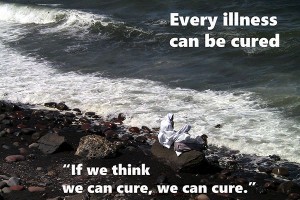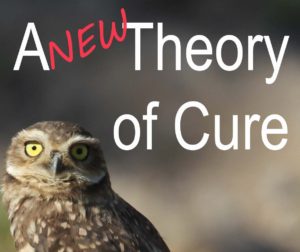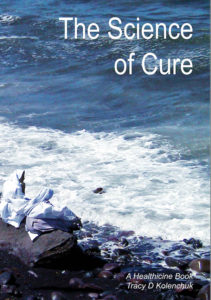 There are many myths about cures. But, the myths about cures are not about alternative medicines, not about forbidden medicines, not about snake oil salesmen. Many myths about cures arise from cure simple ignorance.
There are many myths about cures. But, the myths about cures are not about alternative medicines, not about forbidden medicines, not about snake oil salesmen. Many myths about cures arise from cure simple ignorance.
There are two types of cure ignorance. Misunderstandings about the nature of cures are commonplace. In addition, we often fail to see a cure when it occurs.
Cure Ignorance: Most Medicines Cure Illness.
Reality: Most prescription medicines are designed to treat symptoms. These medicines are symptomicines, not cures. Most medicines make no claim to cure. You take an aspirin for your headache. A symptom. If you have a stronger headache, you might take a stronger medicine. But you don’t cure a headache. A headache is a symptom of illness. Only illnesses can be cured. In many cases, treating symptoms is the best we can do today. It can be very effective. Your headache, in most cases, will go away in time. Many headaches are a natural part of health, and are effectively cured by your body, by your health. The medicine does not cure.
Cure Ignorance: Most illnesses are cured with medicines.
Reality: If you have an illness, and then your health improves, and the illness goes away, your illness was cured with the improvement in health. For example, if you have an unhealthy diet, deficient in specific nutrients, you might develop scurvy, or beriberi, or dehydration. If you health your diet, if you start eating foods with the missing health ingredients – you disease will be cured.
Most illnesses are cured by health.
Cure Ignorance: There is no cure for the common cold.
Reality: The common cold, influenza, measles are all cured by health. There are no medicines to cure these diseases. There is no need for medicines to cure these illnesses. Your healthy body cures them over time. When we are healthier, our bodies cure faster. When we are less healthy, it can take longer. Sometimes, when we are in very poor health, even simple illnesses can lead to more dangerous illnesses, resulting in death.
The statement “there is no cure for the common cold” actually means “there is no medicine to cure the common cold”. But no medicine is needed. The common cold is cured by health. The more health you have, the faster it will cure your cold.
Medicine is no substitute for health.
Cure Ignorance: To cure is to retore perfect health
Reality: Perfect health is impossible. Perfect cures are impossible. Every cure has health consequences. Our health is always changing. Cures stop the progression of an illness, and heal the damage caused by the illness. Healing is seldom, if ever, perfect. Most illnesses have some permanent consequences, some permanent damage that cannot be healed. Partial cures are common. If you have gangrene in your leg, and your doctor cuts off your leg, the gangrene is cured. The wound will heal, as part of the cure, but we can’t regrow your leg – yet. We’re working on that.
Every cure has two parts. The first part stops the progression of the illness. The second part heals the damage. Healing is always present, always ongoing, even when there is no illness.
Cure Ignorance: Alternative Medicines Cure Better.
Reality: Most alternative medicines work exactly like most patent medicines, like most prescription medicines. Most alternative medicines are symptomicines. They treat symptoms, but do not attempt to cure – do not claim to cure. Most alternative medicines have a long history of success treating symptoms – not at curing.
If a medicine cures an illness – there is no need to look for an ‘alternative’. A cure is a cure.
Cure Ignorance: Clinical Studies Test Cures.
Reality: Most clinical studies are not designed to test cures. They measure effects on symptoms, not on illness. If a cure occurs, it might be missed entirely by the clinical study, because the study is measuring symptoms, not cures. Cures are often outside of the bounds of measurement of the clinical study. Next time you see a news report on the latest ‘cure’, check the details. Odds are it is not really a cure, it might be a ‘potential cure’, or more often, just a better treatment for symptoms.
The number of ‘cures’ found in clinical studies is very, very small. Why does this happen? It happens because every cure is an anecdote. Clinical studies ignore anecdotal evidence.
Cure Ignorance: Placebos sometimes cure, confusing Clinical Studies.
Reality: Placebos don’t cure. Most clinical studies test medical actions against symptoms. But symptoms are subjective. Their frequency and severity is very closely tied to the physical, emotional, spiritual and the community status of the patient. When the status of a patient changes, and the symptoms change, and it appears that the placebo, or the medicine, provided benefit. Something real did provide the benefit.
If we are to learn the truths about healthiness and illness, we need to study all factors. If we want to find cures, we need to treat illness, not just symptoms.
Cure Ignorance: We don’t know the cure X, but we’ll know it when we see it.
Reality: There are many people who claim to have cured their cancer, their arthritis. their diabetes, and more. Are their claims true? Are they lying, or perhaps simply deluding themselves? How can we tell? At present, there is no test for a cancer cure. If someone claims to have cured their cancer – it can’t be proven. There is no test for a cure for Type 1 Diabetes, nor Type 2 Diabetes. If someone claims to have cured their diabetes, we have no medical or scientific techniques to judge, or to test their claim. This happens for many diseases – and may be one source of the mistaken belief that many illnesses are incurable. People who cure their illness often disappear from the medical system.
If we cannot recognize a cure, it’s easy to assume the illness is incurable. If we cannot recognize the person who is cured, we can continue to believe the illness is incurable.
Cure Ignorance: Many illnesses go into remission, and come back later.
Reality: Symptoms go into remission. Illnesses do not go into remission. The illness is gone, if it has been cured. It is still present when the symptoms are in remission. The symptoms will re-appear when the illnesses becomes severe enough to make symptoms visible, or observable. If it wasn’t cured, it wasn’t gone.
It’s easy to confuse remission and re-emergence of symptoms with cure, and recurrence of the illness. They are very different. When your cold is cured, you might get another cold: recurrence. If you take a decongestant for your cold, you’re just hiding the symptoms – and they will continue to re-emerge until the cold is cured.
Cure Ignorance: Medical reference texts document cures
Reality: Medical reference books like MERCK”s Manual of Diagnosis and Therapy, Harrison’s Principles of Internal Medicine, and Lange’s Current Medical Diagnosis and treatment hardly use the word cure. When they do, the use is not standardized, not consistent. These texts do not provide a definition of ‘cure’, cure is not in their indexes, and the word cure is not used for many treatments – even when the recommended treatment often cures the illness.
Cure Ignorance: Many illnesses are incurable.
Reality: It is scientifically impossible to prove that any illness is incurable. The only possible way to prove than an illness is incurable is to try every possible technique, and every possible combination, and see if the illness is cured. This is simply not possible. The only reasonable position is that every illness can be cured. When we decide to believe that every illness can be cured, we put ourselves in a strong position to find cures. We can’t prove that every illness can be cured. When we believe that our illness is incurable, it is too easy to give up.
“Every illness can be cured.” – the Healthicine Creed.
Cure Ignorance: We are searching for a cure for cancer.
Reality: Cancer cannot be cured. Does that seem contradictory? Let’s look closer.
In medical terms, an illness is what the patient presents to the doctor. An illness is a specific case of illness, in a specific patient. Every illness can be cured. A disease is what the doctor diagnoses, a general class of illnesses, which can often be treated with standard techniques. It is not possible to cure a ‘class of illnesses’. Only specific cases can be cured.
It’s easy to confuse ‘a case of cancer’ with ‘cancer – the mother of all maladies’. We use the same name, ‘cancer’ for two very different concepts.
Every illness, thus, every case of cancer has the potential to be cured. But we will never cure “the disease of cancer”. We don’t actually cure diseases. Sometimes we can eradicate them. We have eradicated smallpox – even though we haven’t learned how to cure a case of smallpox. We’ve eradicated the disease. But if you have the illness, we don’t know how to cure it. That doesn’t mean it can’t be cured, just that we don’t know how.
Summary:
—————————————
Every illness can be cured.
No diseases can be cured.
Only specific cases of illness can be cured.
Every cure is an anecdote.
— The Healthicine Creed —
to your health, tracy
Tracy is the author of two books about healthicine:


